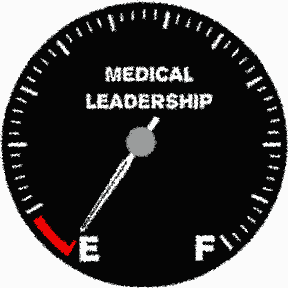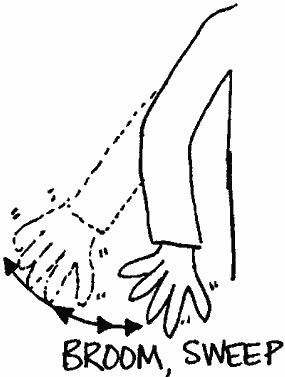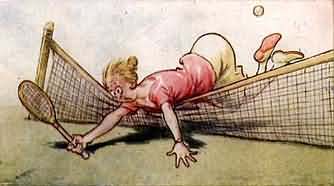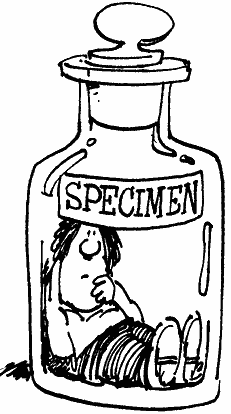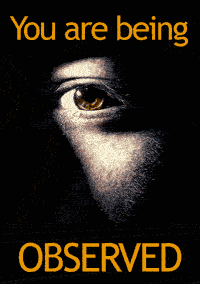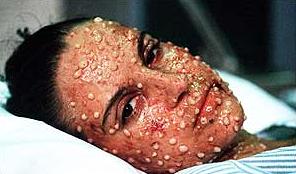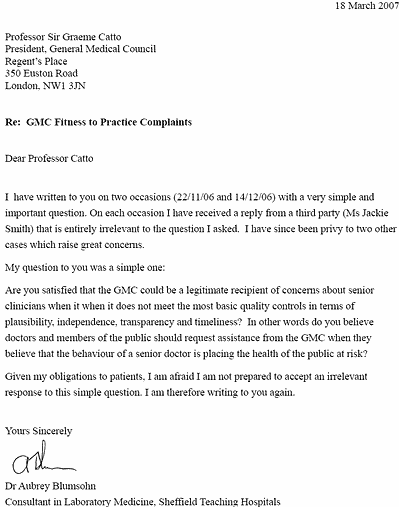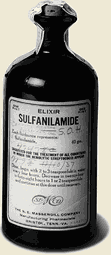Scientific Misconduct Blog Memory Hole: Events of October 27th
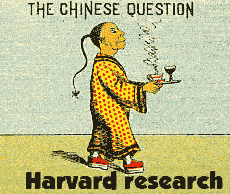
4 years ago: Ethical violations by Harvard researchers in China
This week
in October 2003 a reporter in the Chinese press (China Daily) raised troubling questions about a Harvard research study. 200,000 Chinese farmers had supplied DNA to a Harvard genetic database. Much of this was reportedly without informed (or un-informed) consent. Many violations were reported - compounded by institutional "self-investigation", shredding of evidence, possible fabrication of consent forms, and whitewashing.
The experiments were co-sponsored by Millenium Pharmaceuticals and were conducted in China's Anhui Province in the mid 1990s. Complaints were initially filed by Dr. Gwendolyn Zahner, an epidemiologist: The concerns were that investigators failed to obtain IRB approval for studies actually done, failed to disclose to subjects their rights to refuse, forged or post dated consent forms, and that participants had been coerced into taking part. Where IRB approval was obtained, the number of subjects recruited apparently bore no relation to the number studied. There was also concern that "the communist government's eugenics policies could put individuals with genetically linked diseases at risk of sterilization". The main investigator in several studies was
Dr Xu Xiping of the
Harvard School of Public Health.
Lawrence Summers, then President at Harvard stated :
"It's the responsibility of the dean of the School of Public Health and, ultimately, it's my responsibility as president of [Harvard] university to see to it that where wrong can be put right it is and, more importantly, to see to it that it never happens again." (Boston Globe, 2002)
In fact, nothing has ever been "put right". All we got was another sham internal self-investigation.
The US federal federal office for Human Research Protection (OHRP) received two boxes of documents from Harvard, which were then mysteriously shredded "to save space" [
Link]. OHRP did however issue 3 letters of findings confirming gross violations of informed consent. See: [
Link] [
Link] [
Link]
OHRP then asked Harvard to investigate itself having done the shredding. Harvard mumbled and blustered, and made no apparent attempt to interview the participants or to examine anything of substance. They did not interview a single farmer.
This led Chinese reporters to conduct their own fact-finding investigation. They interviewed the farmers and local doctors who had been ordered to produce a lists of potential participants and their families. It was revealed that many participants thought they were going for a "free check up". They were told the check-up would benefit them, and free medical treatment would be offered." The Washington Post (Dec. 2000) reported villagers of Anhui saying "We were told there would be free medical care". No treatment arrived. Xu’s hospital projects were also criticized for possible use of Communist Party officials to induce "volunteering".
Then in May 2003 the OHRP essentially dropped the China "investigation" letting Harvard researchers off the hook without ever interviewing any of the Chinese human subjects, their families or local medics who had first-hand knowledge. The two federal agencies that are authorized to investigate ethical violations in human research were both headed by administrators who were on leave from Harvard.
Below the references I have included a summary of an article by Margaret Sleeboom (University of Amsterdam) discussing the anthropology of the incident, and a powerful China Daily report discussing the dismal collusion of rarified academic "bioethicists".
Some other Sources (links not always available): - http://www.ahrp.org/ethical/ChinaDaily092503.php
- http://www.ahrp.org/infomail/03/10/25.php
- http://www.ahrp.org/infomail/03/10/01.php
- http://www.ahrp.org/infomail/0302/march312002.htm
- http://www.ahrp.org/infomail/0402/april10a2002.htm.
- http://www.ahrp.org/infomail/03/10/01.php
- http://www.ahrp.org/infomail/03/10/01.php
- http://www1.chinadaily.com.cn/cndy/2002-01-10/51325.html
- The Boston Globe, Harvard-affiliated gene studies in China face federal inquiry, Aug. 1, 2000.
- Chinese Human Genome Project Millenium Pharmaceuticals Harvard School of Public Health The Washington Post, Dec. 20, 2000
- John Pomfret, Harvard Rebukes Head of China Gene Study. Washington Post, August 9, 2001 http://www.hsph.harvard.edu/bioethics/archives/200204/msg00002.html
The Harvard case of Xu Xiping: exploitation of the people, scientific advance, or genetic theft?
MARGARET SLEEBOOMAmsterdam School of Social Science Research, University of Amsterdam
May be obtainable at [
Link] or [
Link]. An abstracted summary of the paper is below
"Many consider the Xu Xiping case as a textbook example of ruthless Western exploitation of development countries".
The article goes on to present the perspectives of 10 different stakeholders in the saga "to examine "the self-justification of behaviour":
1. Xu Xiping: The lead researcher"Despite the criticism of smuggling data, breaking promises of free health care, unethical data collection and accomplice to forcing co-operation form patients, Xu showed no sense of responsibility for any of these allegations. Instead, he blamed less enlightened people, such as local physicians". He asked the ministry of education to censure the reports of Xiong Lei (below). He asked China’s deputy education minister that details should not be given to ‘foreigners’. He is is reported as writing the vice-president of the Chinese Academy of Sciences, urging him to take action against Yang Huanming, a Chinese geneticist who had criticised his work.
2. Xiong Lei: The Chinese reporterSpent a long time on the Xu Xiping case trying to stand up for ‘the people’ of China.
3. Local scientists: 4. Harvard University, the NIH and the OHRP: "It seems that the main concern of Harvard, the NIH and Brigham’s Women’s Hospital is the reputation of their institutes and the clarification of procedures..... Mistakes are related to professional damage rather than to moral failure". Thus, it was only in 2001 that Xu was reprimanded when he sought to interfere with critics. "It was the smell of diplomatic trouble and accusations of interference with China’s internal politics for which Bloom reprimand Xu, not for unethical research."
5. Chu Jiayou: Chinese Academy of Medical Sciences. 6. Qiu Renzong: one of China’s leading medical ethicists.7. Yang Huanming: director of sequencing for the Chinese Human Genome Project."I hope that Harvard and the School of Public Health will understand that the [recruiting] methods they used in China are unacceptable to the Chinese". "Many of the papers of Chinese IRB were forged".
8. China Production Daily, Beijing Youth: "For the sake of our national security: carefully preserve our genetic code" (a claim that genetic engineering is used to make ethnic specific biological weapons).
9. Fang Zhouzi: A San Diego biochemist:"nonsense to think that Americans are trying to destroy the Chinese by unravelling their genetic code"
This kind of talk "hampers proper criticism of Xu Xiping’s behaviour, takes the Chinese people for fools, and uses libel as a source of patriotic rubbish’ (Fang, 2000).
10. Chinese officials: "American science is good for China"
CHINA DAILY Research subjects' right to know must be respected XIONG LEI Oct 2003 08:02:38 page 4 http://www1.chinadaily.com.cn/en/doc/2003-10/22/content_274205.htmWho profits? Who benefits? Who loses? Such questions were the theme of a panel at a working conference on bioethics held in the German capital Berlin earlier this month.
A determined gathering of nearly 100 biologists, philosophers, international law experts, journalists and human-rights advocates from over 30 countries in Africa, America, Asia, Europe and Oceania exchanged views and experiences on issues concerning ethics in the life sciences. They agreed that close attention should be paid to bioethics in all research involving human subjects.
It is essential to know who profits, who benefits and who loses in all research involving human subjects, since our basic rights as human beings are involved. Unfortunately, however, it is often the case that researchers intentionally evade this kind of questions, while many of those taking part as research subjects are not aware enough to ask them.
One example of such evasion is the Harvard-affiliated projects involving Chinese farmers in East China's Anhui Province.
Harvard University in Massachusetts launched a series of genetic research projects in 1994 and has been publishing research papers since then. Starting in 1999, the US Government conducted a three-year investigation into the projects and found them to have been at fault. But, during the investigation period, the wrongdoers continued to publish research papers based on the genetic data illegally obtained. The US federal investigators effectively cleared Harvard in May this year by acknowledging all its "corrective actions."
The faulty human genetic studies involved some 200,000 Chinese farmers, but the US federal investigators did not dispatch any of their own staff to the sites in China, interview a single farmer or consult any Chinese who were critical of the projects or who had evidence revealing possible fraud by the principal Harvard researchers.
We have fascinating principles of bio-ethics in human genetic research. There is the first part of the 1947 Nuremberg Code: "The voluntary consent of the human subject is absolutely essential." The Helsinki Declaration, first adopted in 1964, contains the commitment: "The right of the research subject to safeguard his or her integrity must always be respected." The 1997 Universal Declaration on the Human Genome and Human Rights advocates international co-operation with developing countries in a way that prevents abuse and benefits all.
Yet those researchers who come for our genes never bother to throw pennies to pay for cultivating our awareness of them. They are far more enthusiastic about collecting our DNA samples than honouring our rights. The ordinary people - the silent majority - are kept ignorant of these principles and this ignorance is often abused by some researchers.
If Harvard did take any "corrective actions," they remain unknown to the Chinese public, not to mention the Anhui farmers whose right to know was ignored when their blood was taken away. Here can be felt the powerlessness of those fascinating bioethical principles - they only establish norms for what researchers should do but fail to discipline or punish anyone violating those norms.
When I learned that an international conference on bioethics was due to be held in Beijing in April this year, I proposed to the programme committee that they "add some Chinese farmers and grass-roots medical workers to the list of guests" to be invited to this very important meeting. I e-mailed my proposal to every committee member and told them the Chinese people who gave blood for those developed countries' human genetic projects "have had little opportunity to exchange views with the investigators and researchers on an equal footing. And many of those who were so eager to take their blood samples have shown little interest in what they think and aspire to and would have to say."
I held that the scheduled conference would "offer a good chance to correct this mistake."
My proposal was turned down. The programme committee included famous scholars from England's University of Oxford, Harvard and the Chinese Academy of Social Sciences and they decided that the conference "is an academic meeting which will focus on the ethical issues emerging in human research." They added: "We don't think it is appropriate to invite non-bioethical professionals to attend our conference."
In the end, the conference was not convened because of SARS (severe acute respiratory syndrome). Nevertheless, I was appalled by its organizers' outright denial of the right of so-called "non-bioethical professionals" to discuss with the academics on an equal basis an issue concerning their basic rights as human beings.
I think ethical principles should start with the involvement of all participants, not only the professionals. When it comes to ethics, we are no longer dealing with an exclusively academic issue.
If ethical issues concerning human research must be discussed exclusively by professionals who consider themselves rule makers and have no interest in what other people think, this will only lead researchers into arrogance and violations of human rights. Silent and unnoticed, Chinese farmers have been making contributions to the life sciences, and they deserve a chance to air their views on issues concerning their rights and dignity to life.
As a "non-bioethical professional," I took part in the Berlin conference, entitled "Within and Beyond the Limits of Human Nature." I left it with a stronger belief that those professionals must respect ordinary people's right to know and must discard the arrogant approach that holds that the silent majority's role is nothing more than to offer passively what the professionals want.
If we agree that bioethical principles must be honoured, we should take the issue of bioethics out of the grip of so-called "bioethical professionals." It is an issue that concerns everyone, and nobody is privileged in the face of bioethics.
We in China should put our own house in order through better legislation and enforcement, while companies and institutions collecting gene specimens in our country must be urged to put resources into bioethics education and into promoting bioethical principles among the public so they know how to safeguard their rights. An international tribunal should be established to punish those who violate bioethical principles. An international coalition composed of both professionals and non-professionals should then be formed to make biological research really benefit the majority of the people, starting from honouring our right to know.
Earlier|
Later|
Main Page


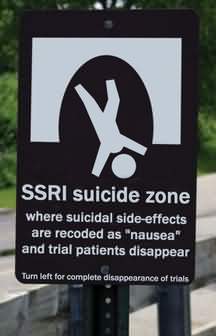 They said it was safe,
They said it was safe, 